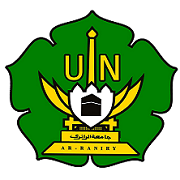Radha’ah in the Perspective of Tafsir Al-Misbah
Abstract
Providing decent food (breastmilk) to support the growth of children is one of the obligations of their parents and it is the gift that is given to a mother by Allah (God). This research is library research (literature research), which uses the interpretation of the Tafsir Al Misbah, the literature from books, journals, dictionaries, and other papers related to this research. It has been proven that breast milk is the best food for babies because of the diverse and complete nutritional content. The main content of breastmilk is 88% of the water that removes excess solute. Breast milk also contains carbohydrates, proteins, fats, vitamins, minerals, hormones, and growth factors. According to Quraish Shihab, radha’ah is interpreted as breastfeeding. In this case, he interpreted radha’ah as breastfeeding although breastfeeding recommendations in surah al-Baqarah is in the form of Khabar (information/news), but it means an order which obliges all mothers to carry out breastfeeding for up to two years with the responsibility of fathers in providing the needs of the family. However, it is permissible for parents to wean their children before two years if this can be bothersome, and it is also permissible for parents to let their children breastfed by other than their biological mothers if the mother is unable to breastfeed her child by herself. However, babies that are breastfeeding from other women will form a nasab (lineage) which means the baby will be forbidden to get married to a child of the woman that breastfed the baby.
Keywords
Full Text:
PDFReferences
Abdul Halim, Donor ASI dalam Perspektif Hukum Islam Institut Keislaman Abdullah Faqih (INKAFA). Manyar Gresik. Jurnal vol 12, No 12, 2016.
Ahmad Mustofa al-Maraghi, Tafsir al-Maraghi. Beirut: Dar al-Fikr, 1974.
Ahmad Warson al-MunawwirKamus al-Munawwir Arab Indonesia. Yogyakarta: Pustaka Progressif, 1999.
Al-Imam Abul Fida Isma’il Ibnu Kasir Ad-Dimasyqi. t.th. Tafsir Ibnu Kasir. Sinar baru Algensindo. Juz 2.
Al-Jaziri, Abd ar-Rahmān. t.th. Kitab al-Fiqh ‘ala al-Mażahib al-Arbaʻah. Beirut: Dār al-Kitab al-‘Ilmiyah.
Ar-Raghib Al-Ashfahani, Kamus Al-Qur’an. Jilid 2. Terjemah Al-Mufradat, Depok: Pustaka Khazanah Fawa’id, 2017.
Bintang Alfiah, Eksistensi Bank ASI (Air Susu Ibu) dan Implikasinya dalam Hukum Rada’ah (Studi Komparatif Ijtihad Yusuf al-Qardawi dan Wahbah al-Zuhaili). Skripsi, Institut Agama Islam Negeri (IAIN) Syekh Nurjati Cirebon, 2013.
Fuad, ‘Abd al-Baqi Muhammad, Al-Mu’jam alMufahras li Alfaz alQur’an al-Karim. Kairo: Dar al Hadis, 1996.
Ibnu Rusyd. t.th. Bidayāh al-Mujtahid wa Nihāyah al-Muqtaṣid. Beirut: Dār al-Fikr.
J. Supranto, Metode Penelitian Hukum dan Statistik. PT Rineka Cipta, Jakarta, 2003.
Kemenag RI, Al-Qur’an danTerjemah. Jakarta: Akbar Media, 2011.
Kementrian Agama RI. Tafsir Tematik Al-Qur’an: Kesehatan dalam Perspektif Al-Qur’an. Jakarta: Lajnah Pentashihan Mushaf Al-Qur’an. cet. 1, 2009.
Lajnah Pentashihan Al-Qur’an, Kesehatan Perspektif Al-Qur’an. Jakarta: Lajnah Pentashihan Al-Qur’an, 2009.
Luis Maʻlūf, Al-Munjid fī al-Lugah wa al-A’lam. Beirut: Dār al-Masyriq, 1986.
M.Quraish Shihab, Tafsir Al-Misbah: Pesan,Kesan, dan Keserasian Al-Qur’an, Jakarta: Lentera Hati, 2003.
Muhammad Arifin Siregar, Pemberian ASI Eksklusif dan Faktor-Faktor yang Mempengaruhinya. Bagian Gizi Kesehatan Masyarakat Fakultas Kesehatan Masyarakat Universitas Sumatera Utara, 2004.
Muhammad Baqir Hujjati, Pendidikan Anak dalam Kandungan. Jakarta Selatan: Cahaya, 2008.
Muhammad ibn Ahmad al-Qurthubi, Al-Jami‘ li Ahkam al-Qur’an. Beirut: Dar al-Kutb al-‘Ilmiyyah, 1993.
Munir, “Pemikiran Hadis-Hadis Raḍāʻah dalam Kitab Taysir Allam, Subul as-Salam, dan 2002 Mutiara Hadis”, al-Fikr: Jurnal Pemikiran Islam, Vol. 16, No.1, tahun 2012. Makassar: Fakultas Ushuluddin dan Filsafat UIN Alaudin Makassar, 2012.
Pusat Bahasa Departemen Pendidikan Nasional, Kamus Besar Bahasa Indonesia, Jakarta: Balai Pustaka, ed. 3, 2007.
Saʻid Ibn Hazm, t.th. Al-Muhallā bi al-Āṡār, Beirut: Dār al-Fikr.
Siti Ardianti, Konsep Radāʻah Dalam Alquran. Tesis: Program Pascasarjana Universitas Islam Negeri Sumatera Utara Medan, 2015.
Sri Rahayu, Menyusui Selama 2 Tahun Dalam Tafsir al-Azhar (Studi Terhadap Surat al-Baqarah: 233 dan Korelasinya Dengan Sains), Skripsi Fakultas Ushuluddin, Jurusan Tafsir Hadis, IAIN SU Medan, 2013.
Tim Kementrian Agama RI, Al-Qur’an dan Tafsirnya. jilid 1. Jakarta: Lembaga Percetakan Al-Qur’an Departemen Agama RI, 2009.
Yasien Mohamed, Fitrah: The Islamic Concept of Human Nature, terj. Masyhur Abadi, Insan yang Suci Konsep Fitrah dalam Islam Bandung: Mizan, 1997.
Zaghlul An-Najjar, Sains dalam Hadis Mengungkap Fakta Ilmiah dari Kemukjizatan Hadis Nabi. Jakarta: Amzah, cet 1, 2011.
DOI: http://dx.doi.org/10.22373/sjhk.v4i2.6419
Refbacks
- There are currently no refbacks.
Copyright (c) 2020 Zulhamdi

This work is licensed under a Creative Commons Attribution-ShareAlike 4.0 International License.
Samarah: Jurnal Hukum Keluarga dan Hukum Islam has been indexed by:


















